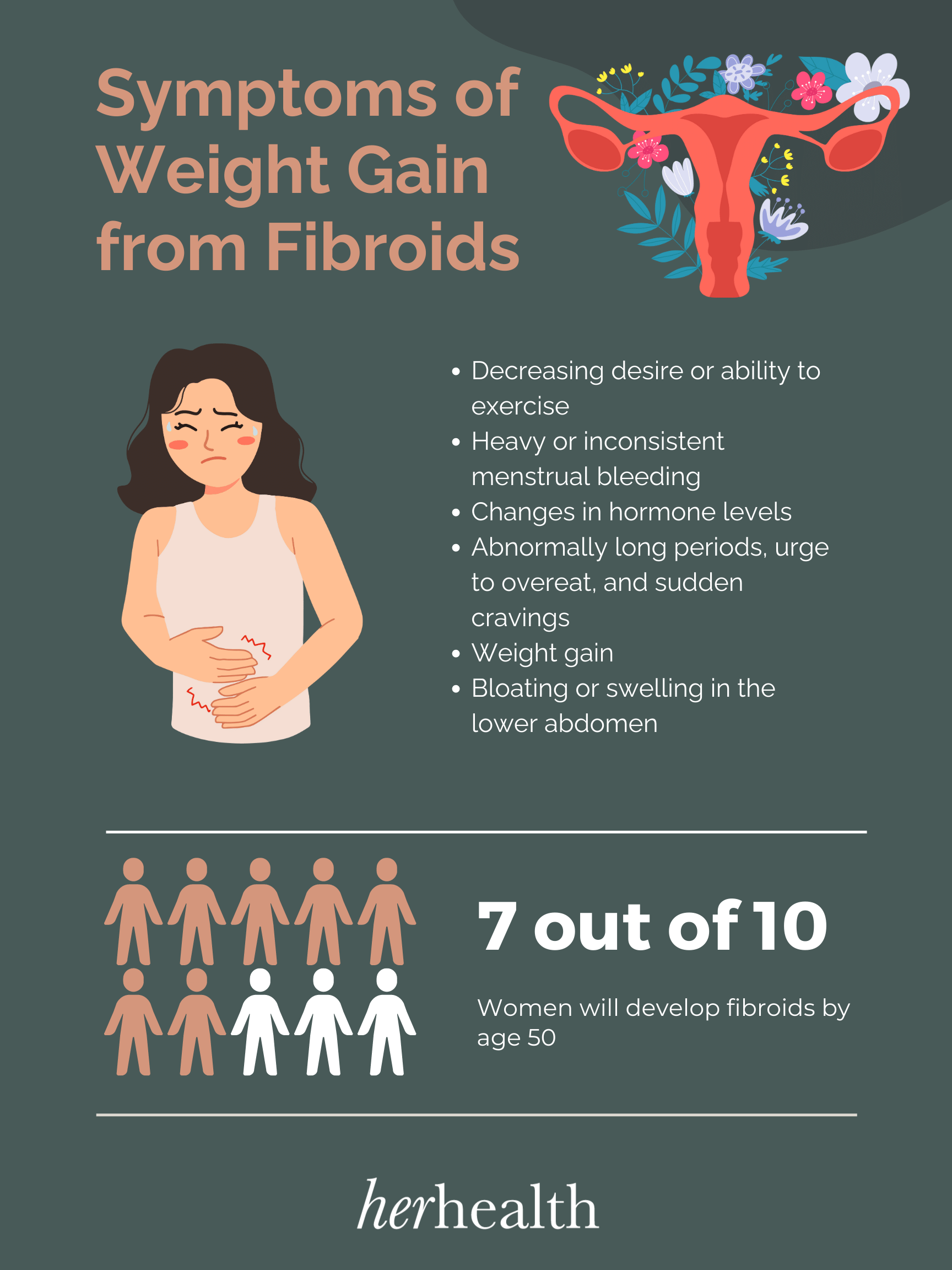Fibroid Belly: Causes, Symptoms, & Solutions
Fibroid symptoms and weight gain are inextricably connected, uterine fibroids may not be the first thing that comes to mind when struggling with weight gain. While the most common uterine fibroids symptoms are painful cramping and heavy periods, the fibroid belly bulge is another little-known—and even less talked about—effect of uterine fibroids.
You may have wondered if fibroids cause weight gain, or even that stubborn “belly pooch” you’ve been trying to fast or crunch away. There’s much more to it than just exercising or working out, so let’s dig into the details and arm you with education and resources!
Symptoms of Weight Gain and Fibroid Belly
Due to the placement of fibroids, as they grow and become heavier, it can give a woman the appearance of being pregnant when she isn’t—also known as fibroid belly. These non-cancerous growths are fed by hormone imbalances, specifically estrogen, and tend to grow more rapidly during the reproductive years when hormone levels are peaking. If you’re experiencing unexpected weight gain or any of the following symptoms of fibroid belly, scheduling a consultation and screening should be considered.
Bloating or swelling in the lower abdomen
Weight gain
Excessive fatigue
Decreasing desire or ability to exercise
Heavy or inconsistent menstrual bleeding
Changes in hormone levels
Abnormally long periods
An urge to overeat and sudden cravings
Reducing Your Risk of Weight Gain and Fibroid Belly
While it may seem disheartening, you are not powerless in this situation, or without options! Because fibroids are fueled by hormonal imbalance, nourishing your body with whole foods low in estrogen, high in fiber, and that are minimally processed is a great place to start.
Fruits and vegetables, such as blueberries, spinach, and tomatoes, are packed with antioxidants and phytochemicals that can lower inflammation in the body. Whole grains, such as brown rice and whole wheat bread, are high in fiber and regulate blood sugar levels, which is also important for maintaining hormone balance. Lean proteins, such as chicken, fish, and legumes, provide the body with essential amino acids that are necessary for hormone production and regulation.
Regular exercise can also help reduce the risk of fibroid development, weight gain, and fibroid belly although some exercises are more fibroid-friendly than others. Cardiovascular exercises, such as running, cycling, swimming, strength training, yoga, or other forms of mind-body exercises are ideal, as they tend to be lower-impact and won’t put too much strain on your abdomen.
When Lifestyles Changes Aren’t Enough
While lifestyle changes can be beneficial, there may come a point where additional help is needed. At HerHealth, our fibroid specialists are here to support you.
Uterine Fibroid Embolization is a unique technique that treats fibroids without painful surgery or lengthy recovery time. UFE uses image-guided radiology to safely cut off the blood supply to fibroids, causing them to shrink and die. With just a small incision on the wrist, your fibroids and weight gain will be a thing of the past.
If you are interested in finding out more about fibroids and the treatments available, schedule your fibroid consultation here.
Want to know everything going on in women’s health? Follow along on Instagram and Facebook.




